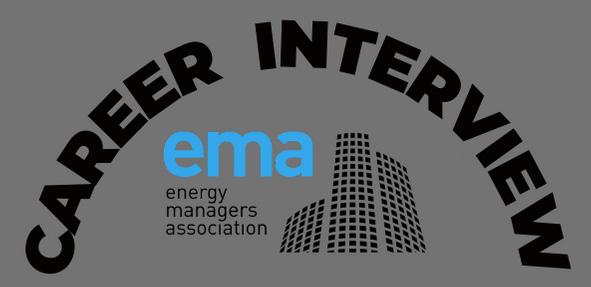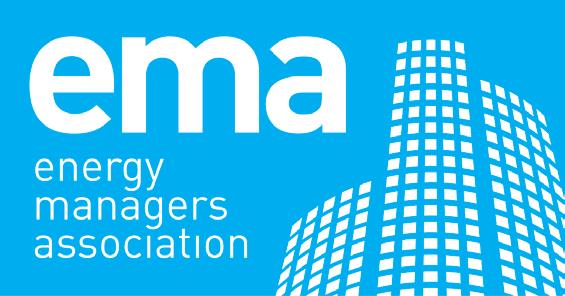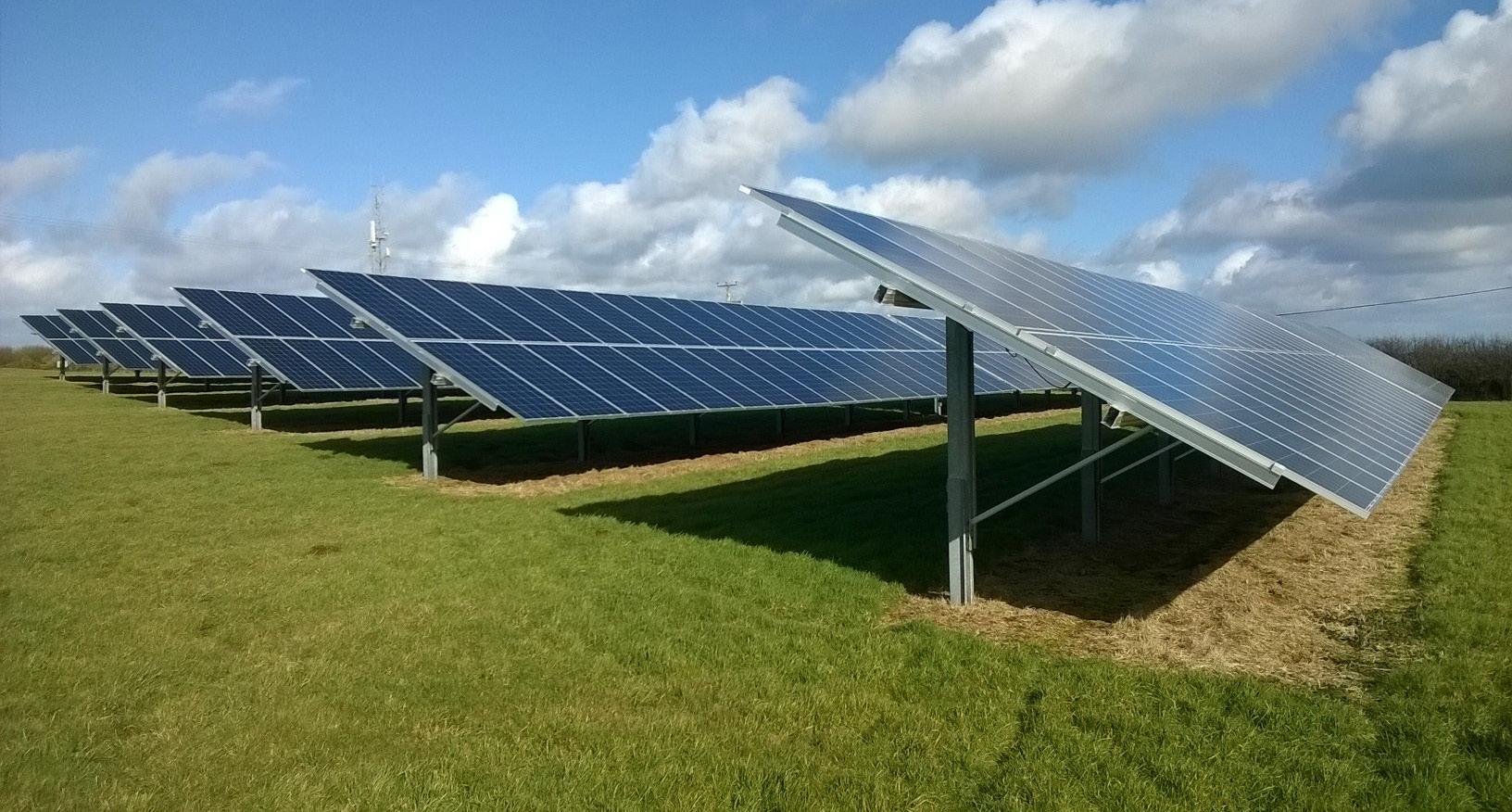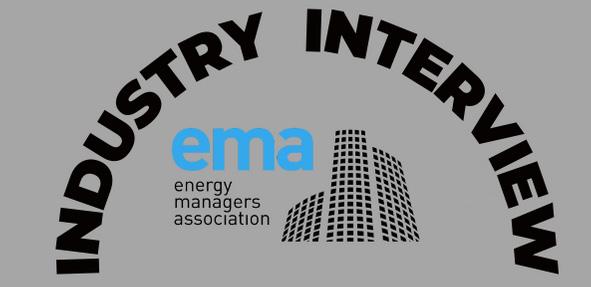
11 minute read
WOMEN IN LEADERSHIP INTERVIEW

While it is perceived that there are many structural and other barriers that limit women’s progress through the ranks in energy management, we would like to explore a different question: how have the women who have made it to the very top in energy management overcome those barriers?
Advertisement
Anna Dowson, Group Head of Energy at Tesco takes us through the journey of pushing her career boundaries and finding the balance to rise to the prominence in energy management.

What is your personal story?
I have always been a huge admirer of the built environment and in my final year in school I simply could not make up my mind whether I wanted to be an architect or an engineer. My indecision was such that I ended up doing both (through an MEng degree in Architecture and Environmental Design). Those 4 years were more than enough to make me realise that I was hardwired as an engineer (despite my best attempts to nurture my inner architect) but it also made me incredibly aware of the impact that buildings have on the environment.
And so, I started my professional career in a multi-disciplinary engineering consultancy, only to face into the recession following the financial crisis of 2008. With a shrinking construction industry, I decided to go back into academia, successfully pursuing an Engineering Doctorate focusing on the discrepancies between predicted and actual energy performance of buildings. That was the pivotal moment in my journey towards a career in energy management.
One of the biggest (personal) takeaways from my research was that it almost didn’t matter how well a building was designed, if it was poorly operated, all of your efforts as a designer went down the drain. And that light bulb moment triggered my desire to move away from design into an operational energy management role. And what better place to start that journey than with the UK’s biggest food retailer (responsible for just under 1% of the UK’s electricity consumption)?
What does your role entail?
Did you always know where you relationships with my team and As the Group Head of Energy for wanted to be professionally at key stakeholders. In doing so, I Tesco, I’m responsible for setting this stage? believe I managed to develop a the strategy to reduce our energy As soon as I joined Tesco as an deep sense of empowerment and consumption and associated International Energy Manager, motivation amongst my team. spend, ensuring increases in I had my eyes set on the Head of energy prices are fully mitigated. Energy role. I could not imagine During my first year in role, I In doing so, I manage a team a more exciting and fulfilling role, had the opportunity to take of 5 energy managers, 1 water leading a team of brilliant energy part in an ‘Insights’ personal manager, 3 field engineers and managers to deliver meaningful profiling exercise. I found this 10 analysts. They are the true and positive change, not only for to be incredibly powerful (and heroes behind the amazing results the environment but also to the eerily accurate). I would highly we have delivered in the last business’ profitability. What I did recommend this (or similar tools few years, including an annual not expect was to be given the such as Myers & Briggs) as a means reduction in electricity use of opportunity to take on the role of gaining further insights into 7.5% in 20/21 your strengths, alone, whilst meeting our 2020 carbon reduction “ One of the biggest takeaways from my research was that it almost didn’t matter how well a building was designed, if it was poorly operated, all of your efforts as a designer went down blind-spots and opportunities for development. targets 1 year early. the drain. And that light bulb moment triggered my desire to move away from design into an operational energy management role. For me, a key area I needed to focus on was As part of my confidence, my role, I’m also responsible at such a young age (I had just especially when seeking to for ensuring we meet the turned 30 when I was promoted). resolve tough issues. In part, my ambitious carbon reduction confidence grew with time as I targets associated with property portfolio. Tesco has a longstanding ambition to become net-zero carbon by 2050, and What is your leadership style, and how did you develop your leadership confidence and voice? started to prove to myself (and others) that I was indeed qualified and competent enough to do my job (and do it well). Yet, I feel that following the Paris Agreement, we I was very much ‘catapulted’ into I had to consciously push myself conducted a thorough review of a leadership role, without having out of my comfort zone, and our targets and plans. As a result had much prior experience with every successful attempt at of this review, we set ourselves new and more aggressive science-based targets, in line with a 1.5°C warming trajectory. This translates to ambitious energy efficiency targets coupled with a shift towards renewable electricity sources (both on and off-site). More in managing a team. This was undoubtedly a daunting process, but surely one of great self-discovery. I’m quite a ‘bubbly’ person and thrive in collaborative, honest and energetic environments. Initially, I was concerned that these traits braving unchartered waters, my confidence grew, bit by bit. I do still have quite a lot of ‘mind-talk’ and will occasionally question my worth, so I must admit this is an area I will just need to keep working on. What are, from your perspective, recently, I am also leading our were not conducive of strong the biggest challenges for strategy to support the business’ leadership, perhaps due to a lack women in energy management plans for fleet electrification, of role models that I could identify leadership roles? charging infrastructure for myself with. I could have tried As with most careers that require customer EVs, automation of our to ‘dial down’ my natural style, some level of technical expertise, fulfilment centres and heating but instead I chose to tap into I think the shortage of role models decarbonisation. it, building strong and genuine is one of the biggest barriers.

I believe that role models are crucial in motivating those in the earlier stages of their career but also from an even earlier age. How many young girls aspire to be engineers whilst still in school? Perhaps a decision early on not to pursue subjects such as maths or physics could prevent talented girls from entering into a technical career later on. That is not to say that formal technical qualification is a pre-requisite to a career in energy management, but I do
believe that a minimum level of technical knowledge is required for the relevant industry you would be looking to work in. Perhaps, even an expectation that a technical degree would be required, could be a barrier to more women entering (and progressing) in the field of energy management. I read a study once stating that most women will not apply for a job unless they meet 100% of the requirements, whilst the same did not apply for most men. I truly believe that this is one of the biggest reasons why we don’t see enough women in leadership roles. Which leads me back to the lack of role models - could more role models enthuse further confidence in women, nudging them to take a chance on that job that feels just out of reach?
What can women do to overcome these challenges or to change these situations?
In my opinion, successful energy managers need to have strong collaborative skills to operate cross-functionally and leverage the support required to deliver savings to the business. Studies suggest that women are naturally strong collaborators, which is something I believe should not be underestimated. When coupled with a genuine purpose and determination, effective collaboration skills can be incredibly powerful.
Another powerful ally is curiosity. My thirst for knowledge is truly insatiable and I genuinely think that is one of the attributes that have helped me the most throughout my career. Being curious and inquisitive is a brilliant way to learn both technically and personally.
And finally, building on from the previous question, I think a pinch of courage to take on new challenges is also essential! And this becomes much easier when you have a good support network around you.
Many people struggle with finding a mentor or support to help them in their career journey. Did you ever receive any form of support or mentoring as you moved along?
Absolutely, and I personally do not think I would have made it this far without the support of my mentors (as well as my family). As I mentioned earlier, confidence does not come easy to me so at each of the big cross-roads in my career, I very much relied on my support network to remind me that “I could do it!” Having someone to nudge you out of your comfort zone, helping you focus on your strongest qualities whilst managing your blind spots and also helping you learn from your mistakes, is crucial.

What about training? For those who want to be leaders, do you advise that they get any formal training on how to lead?
As far as leadership skills go, I feel that I learned them mostly on the job. I did have some training sessions through my employer and many of them were very insightful (I particularly benefitted from training around ‘tough conversation’ and ‘coaching’). Yet nothing replaces the real-world dynamics and interactions with your team and stakeholders. Reflecting and learning at every possible opportunity is also key.
If I had to pick a single area of focus it would be self-awareness. Learning about your own strengths and weaknesses, and how to manage them, is probably the best use of your time and effort. This will enable you to grow into an authentic & credible leader. “ As with most careers that require some level of technical expertise, I think the shortage of role models is one of the biggest barriers. I believe that role models are crucial in motivating those in the earlier stages of their career but also from an even earlier age. How many young girls aspire to be engineers whilst still in school?
Looking back, what three pieces of advice do you have for your younger self?
• Believe in yourself and surround yourself with people who believe in you too.
• Don’t feel that you have to change who you are to fit into the ‘stereotypical’ leadership profile. But do be mindful that your kindness can be perceived as weakness.
• Embrace your curiosity and
‘geekiness’ - they will get you far!
What are your long-term plans professionally?
I cannot imagine a world where I do not work in Energy Management and/or Sustainability. My medium-term plans are to continue growing my knowledge and influence to deliver even more ambitious energy and carbon savings to Tesco.
After that I suppose I’ll have to strive for world-domination? I joke, but the reality is I am yet to find a job out there that would excite me enough to make me want to leave my current role.
ENERGY MANAGEMENT ONLINE TRAINING SCHEDULE 2021
Energy Management Theory Combined with Real-World Applications
MAY
13th SECR Compliance 14th Energy Procurement 21th Turning Data into Energy Savings 27th Understanding and Delivering Behavioural Change 28th Essential HVAC Control and Optimisation
JUNE
9th Waste Management 10-11th Energy Management in Building Services 17th Water Management 24-25th Fundamentals of Energy Management
REDUCED PRICES
Knowledge and Skills Gap Analysis Interview
Understanding of a range of energy management competencies is required for professionals to effectively manage organisation’s energy cost and consumption, monitoring and reporting energy use, as well as meeting energy efficiency requirements. The EMA can assess your knowledge and skills through the Knowledge and Skills Gap Analysis Interview. The Interview is an informal 60-minute conversation that concludes with a feedback on how to progress your professional development and advance your career.
Group Training
All courses can be delivered to teams or groups of stakeholders from the same organisation or industry in a standard format, or as tailored sessions (minimum 6 candidates). For a quote email jana.skodlova@ theema.org.uk with your chosen course title and approximate number of staff. We can also develop new, bespoke material to fit specific client needs.
For an up-to-date list of all our courses visit our website at www.theema.org.uk
“The course built on all aspects of previous knowledge and added a potential new skill that I did not have before attendance.”
Energy & Environmental Manager - Celtic Manor Collection
“It was informative, useful and given confidence to challenge quotes and suppliers.”
Energy Efficiency Manager - Parkwood Leisure






